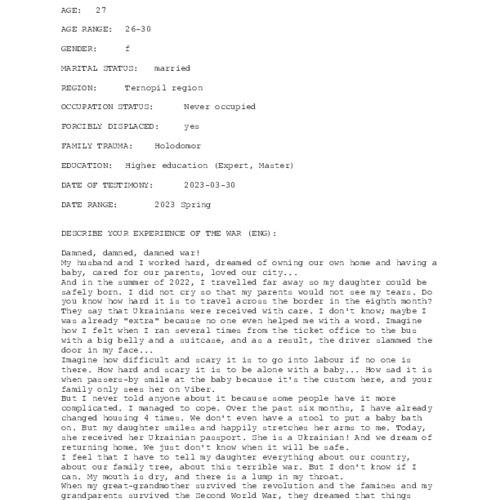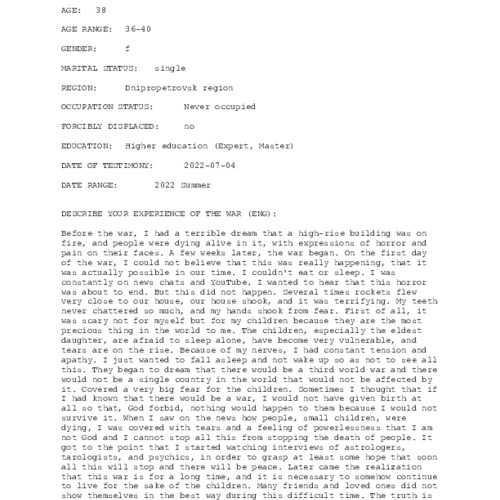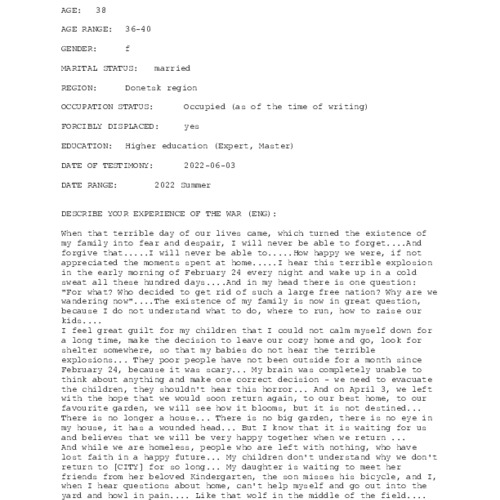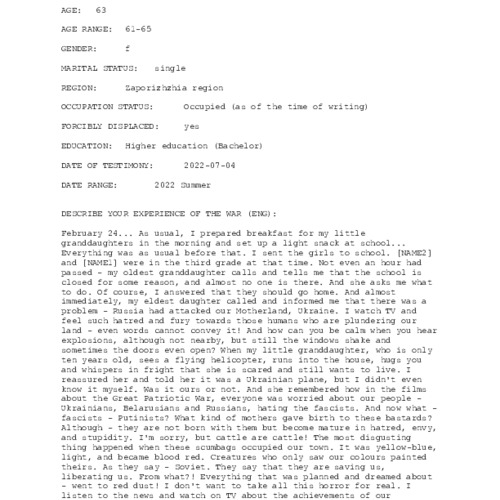

Introduction
What does it mean to be a parent in a time of war?
How do you raise a child as Ukrainian when you are away from home and under constant threat?
Here, we explore the lived experiences of Ukrainian parents and caregivers as they navigate the impossible task of raising children during the Russia-Ukraine war. Through four deeply personal testimonies, these stories reveal the emotional and physical labour of caregiving in wartime, communicating how adults protect and explain war to children, and the effects of trauma on parent-child relationships.
Together, these testimonies show how parents and children negotiate trauma, language, and identity in wartime. From a young mother who gave birth in exile, to a grandmother caring for her granddaughters while displaced, all stories are bound by a common thread: the profound love and fear that defines parenthood in wartime. Whether it be shielding a child from the sound of airstrikes, explaining the absence of a destroyed home, or deciding whether to flee across borders, these caregivers grapple with decisions that hold deep emotional and moral weight every day, all while trying to guarantee their own survival.
Three of the four testimonies come from forcibly displaced families, adding a powerful dimension of how war uproots place, memory, and routine. Even as they guide children through bombings and instability, these caregivers reflect on how this war will shape their children’s future identities and memories, sometimes choosing silence or gentler truths to shield their children from the full weight of reality. What’s more, parents and caregivers actively work to preserve cultural identity and memory, even as war separates them from home. Many describe feelings of burnout, anxiety, and helplessness, reminding us that the mental health impact of war is compounded for those caring for others.
By focusing on the intimate realities of caregiving, this exhibit speaks to broader themes of trauma, language, memory, place, and identity. It reveals how war doesn’t only cause physical damage to nations and their citizens, but seeps into the intimacies of bedtime routines and conversations between generations. These personal accounts capture the dual burden many parents and caregivers share: surviving the war themselves, while also trying to preserve their children's sense of safety, identity, and hope.
Testimonies from the War




